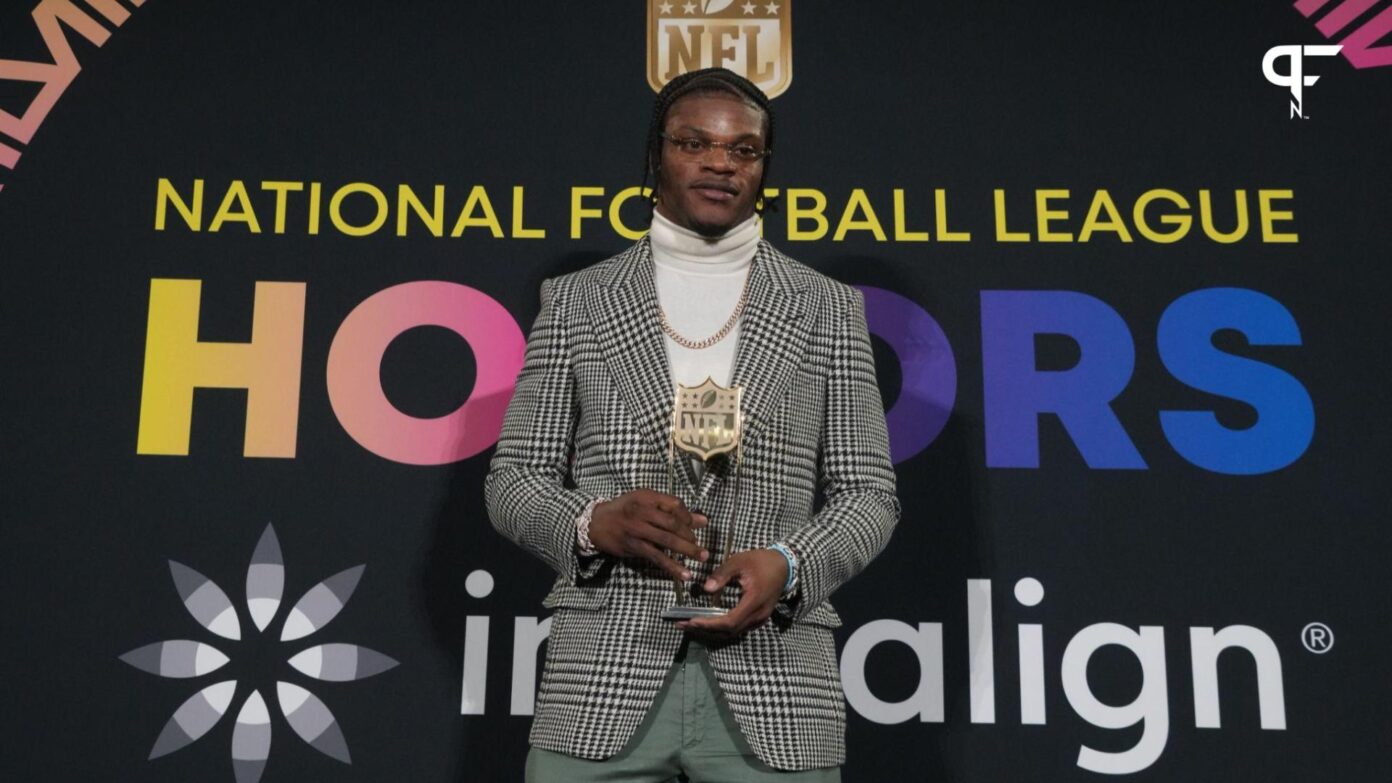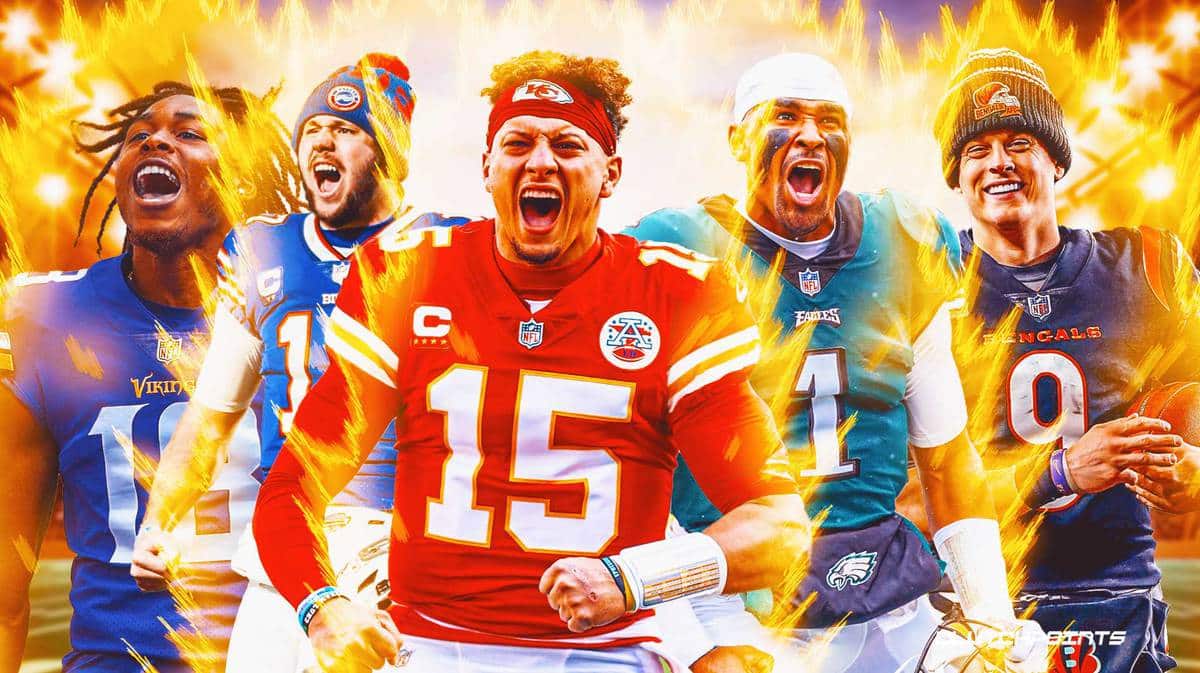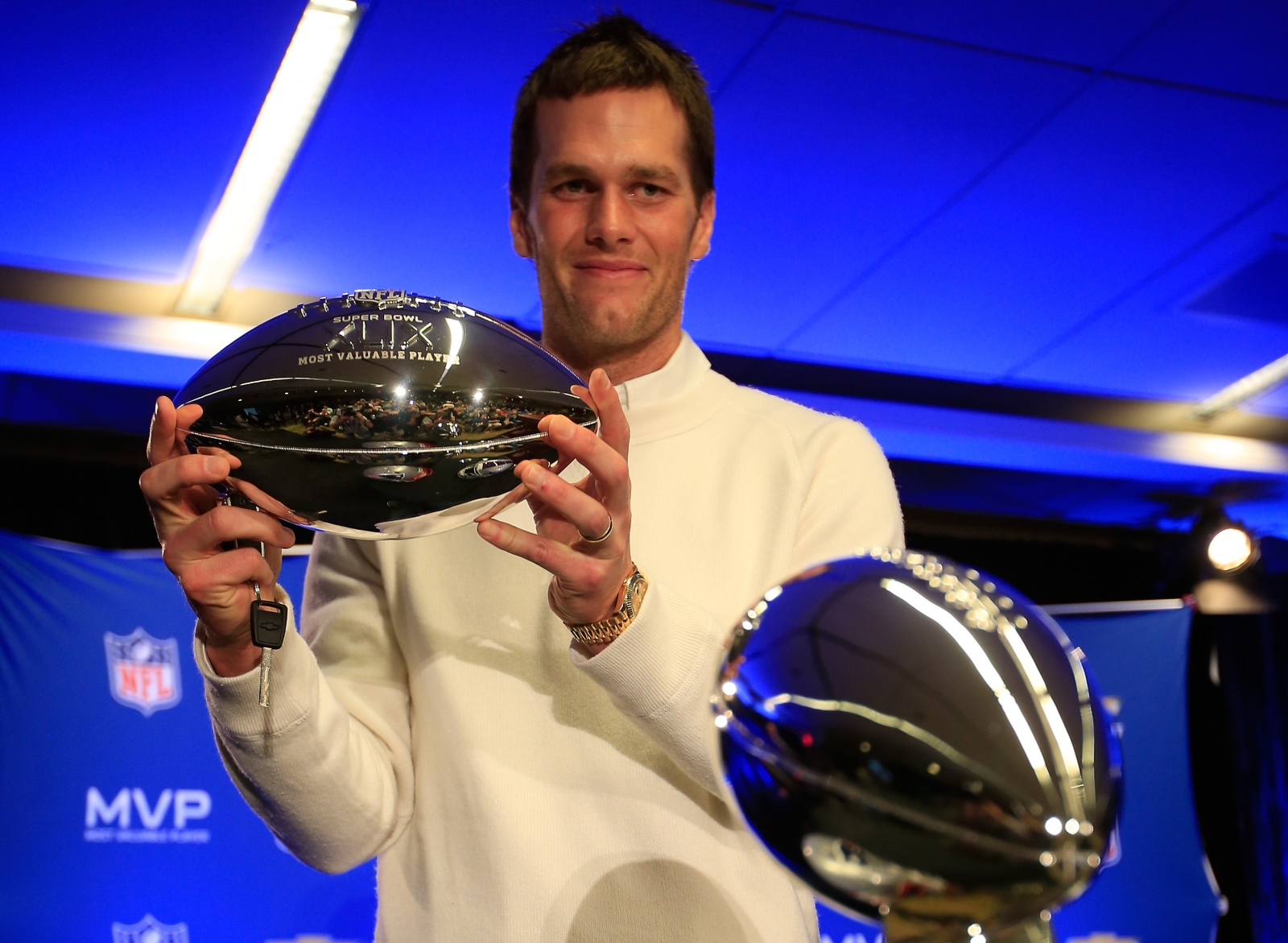The NFL MVP award is one of the most prestigious honors in professional football, celebrating the players who have made the most significant impact on their teams and the league. Each season, fans and analysts eagerly anticipate the announcement of the MVP, as it recognizes not only individual excellence but also the ability to elevate a team's performance. This accolade is a testament to a player's skill, dedication, and leadership on and off the field.
The NFL MVP is more than just a title; it represents the pinnacle of success in the sport. Since its inception, the award has been given to quarterbacks, running backs, wide receivers, and even defensive players who have demonstrated exceptional talent and consistency. The MVP race is always highly competitive, with players pushing the boundaries of what is possible in football.
As we delve into the world of NFL MVPs, we will explore the history of the award, its significance, and the players who have earned this prestigious recognition. This article will provide a comprehensive overview of the NFL MVP, including insights into the selection process, key statistics, and the impact of MVPs on the game. Let's begin by understanding the evolution of this iconic award.
- Sdmoviespointzone Your Ultimate Destination For Movie Entertainment
- 4 Hub Movies A Cinematic Universe Of Franchise Favorites
Table of Contents
- The History of the NFL MVP Award
- How the NFL MVP is Selected
- Notable NFL MVP Winners
- Quarterbacks Dominating the MVP Race
- Running Backs Making Their Mark
- Wide Receivers and Their Contributions
- Defensive Players in the MVP Spotlight
- Key Statistics and Records
- The Impact of NFL MVPs on the Game
- The Future of the NFL MVP Award
The History of the NFL MVP Award
The NFL MVP award has a rich history that dates back to the early days of professional football. Originally established in 1931, the award was initially presented as the "Most Valuable Player" by the Associated Press (AP). Over the years, the award has evolved, with different organizations and media outlets contributing to its selection process. The NFL officially recognized the MVP award in 1957, and since then, it has become a cornerstone of the league's annual honors.
In the early years, the MVP award was often given to players who excelled in multiple positions, showcasing versatility and adaptability. As the game grew more specialized, the award began to focus on individual brilliance, with quarterbacks and running backs dominating the conversation. The history of the NFL MVP is a reflection of the league's development and the changing dynamics of football.
Evolution of the Award
Throughout its history, the NFL MVP award has undergone several changes. Initially, there were separate awards for offensive and defensive players, but in recent years, the focus has shifted to a single MVP award. This change highlights the importance of recognizing the most impactful player, regardless of position. Additionally, the inclusion of defensive players in the MVP race has added a new dimension to the award, showcasing the growing recognition of defense in the game.
- Fikfap Doesnt Work A Comprehensive Guide To Understanding The Issue
- Does Https Bollyflix Work A Comprehensive Guide
How the NFL MVP is Selected
The selection process for the NFL MVP is a rigorous and transparent procedure. A panel of sports journalists, analysts, and broadcasters votes for the MVP at the end of each season. These voters consider various factors, including a player's statistical performance, leadership qualities, and overall contribution to their team's success. The voting process ensures that the MVP award is given to the player who has had the most significant impact on the league.
Key Criteria for Selection
- Statistical Performance: Players with outstanding individual statistics are often considered strong candidates for the MVP award.
- Team Success: A player's ability to lead their team to victories and playoff berths is a critical factor in the selection process.
- Leadership: The MVP should embody the qualities of a true leader, inspiring teammates and elevating the team's performance.
Notable NFL MVP Winners
Throughout the history of the NFL MVP award, several players have left an indelible mark on the game. From legendary quarterbacks to dynamic running backs, these players have set the standard for excellence in football. Let's take a look at some of the most notable MVP winners and their contributions to the sport.
Biography of Notable MVP Winners
| Name | Position | Team | Year(s) MVP |
|---|---|---|---|
| Peyton Manning | Quarterback | Indianapolis Colts/Denver Broncos | 2003, 2004, 2008, 2013 |
| Tom Brady | Quarterback | New England Patriots | 2007 |
| Barry Sanders | Running Back | Detroit Lions | 1991 |
Quarterbacks Dominating the MVP Race
Quarterbacks have historically dominated the NFL MVP race, with their ability to control the game and lead their teams to victory. Players like Peyton Manning, Tom Brady, and Aaron Rodgers have set new standards for quarterback play, earning multiple MVP awards throughout their careers. The dominance of quarterbacks in the MVP race is a testament to their importance in modern football.
Why Quarterbacks Dominate
Quarterbacks are often the focal point of a team's offense, making critical decisions and executing plays that determine the outcome of the game. Their statistical contributions, such as passing yards, touchdowns, and quarterback ratings, make them standout candidates for the MVP award. Additionally, quarterbacks are expected to lead by example, both on and off the field, further solidifying their role as MVP contenders.
Running Backs Making Their Mark
While quarterbacks may dominate the MVP conversation, running backs have also made significant contributions to the award. Players like Barry Sanders, Emmitt Smith, and Walter Payton have showcased their versatility and athleticism, earning the respect of fans and analysts alike. Running backs bring a unique dimension to the game, combining power, speed, and agility to create game-changing plays.
Key Contributions of Running Backs
- Rushing Yards: Running backs are often judged by their ability to gain yards on the ground, breaking tackles and outrunning defenders.
- Receiving Ability: Modern running backs are expected to contribute in the passing game, catching passes out of the backfield and turning them into significant gains.
- Leadership: Like quarterbacks, running backs are often looked to as leaders on the team, inspiring their teammates and setting the tone for the offense.
Wide Receivers and Their Contributions
Wide receivers have also begun to make their mark in the NFL MVP race, with players like Jerry Rice and Steve Smith Sr. earning recognition for their exceptional performances. Wide receivers bring a unique skill set to the game, combining speed, agility, and route-running ability to create mismatches against defenders. Their contributions to the passing game have become increasingly important in today's offensive schemes.
Why Wide Receivers Are Recognized
Wide receivers are judged by their ability to catch passes, gain yards after the catch, and score touchdowns. Players who consistently perform at a high level and contribute to their team's success are often considered for the MVP award. The growing emphasis on passing offenses has elevated the importance of wide receivers in the game, making them viable candidates for the MVP honor.
Defensive Players in the MVP Spotlight
Although rare, defensive players have occasionally been recognized as NFL MVPs, highlighting the growing importance of defense in the game. Players like Lawrence Taylor and Alan Page have earned the award for their dominant performances on the defensive side of the ball. Defensive MVPs showcase their ability to disrupt opposing offenses and create turnovers, making them invaluable assets to their teams.
Key Attributes of Defensive MVPs
- Sacks and Tackles: Defensive players are often judged by their ability to pressure the quarterback and stop opposing runners.
- Interceptions and Forced Fumbles: Defensive MVPs excel at creating turnovers, turning the tide of the game in their team's favor.
- Leadership: Like their offensive counterparts, defensive MVPs are expected to lead by example, inspiring their teammates and setting the tone for the defense.
Key Statistics and Records
The NFL MVP award is often associated with impressive statistics and records. From passing yards to rushing touchdowns, MVP winners have consistently set new standards for excellence in the sport. Let's take a look at some of the key statistics and records associated with the MVP award.
Notable Statistics
According to the NFL's official statistics, the following records have been set by MVP winners:
- Most Passing Yards in a Season: 5,477 yards by Peyton Manning in 2013.
- Most Rushing Touchdowns in a Season: 27 touchdowns by Shaun Alexander in 2005.
- Most Receiving Yards in a Season: 1,872 yards by Jerry Rice in 1995.
The Impact of NFL MVPs on the Game
NFL MVPs have had a profound impact on the game, influencing the way football is played and perceived. Their contributions have set new standards for excellence, inspiring future generations of players to strive for greatness. The legacy of MVP winners extends beyond the field, as they become ambassadors for the sport and role models for fans around the world.
Shaping the Future of Football
The impact of NFL MVPs is felt not only in their individual performances but also in the way they shape the game. By pushing the boundaries of what is possible, MVP winners have influenced the development of new strategies, techniques, and technologies in football. Their legacy continues to inspire players, coaches, and fans alike, ensuring the continued growth and evolution of the sport.
The Future of the NFL MVP Award
As the NFL continues to evolve, the MVP award will undoubtedly adapt to reflect the changing dynamics of the game. With the increasing emphasis on specialization and innovation, the criteria for selecting MVPs may shift to recognize new forms of excellence. The future of the NFL MVP award is bright, as it continues to celebrate the most impactful players in the sport.
Looking Ahead
As we look to the future, the NFL MVP award will remain a symbol of excellence and achievement in football. By recognizing the players who have made the most significant contributions to the game, the MVP award will continue to inspire and motivate players to strive for greatness. The legacy of the MVP award will endure, as it celebrates the best of the best in professional football.
Conclusion
In conclusion, the NFL MVP award is a celebration of excellence and achievement in professional football. From its rich history to its impact on the game, the MVP award has become a cornerstone of the sport. By recognizing the players who have made the most significant contributions to their teams and the league, the MVP award continues to inspire and motivate players to strive for greatness.
We invite you to join the conversation by leaving a comment or sharing this article with your friends and fellow football fans. Together, let's celebrate the legacy of the NFL MVP and the incredible players who have earned this prestigious honor. Stay tuned for more insightful articles on the world of professional football!
- Sd Movie Hub Your Ultimate Destination For Streaming Movies Online
- Iot Ssh P2p Free Download For Mac Without Hassle Your Ultimate Guide


